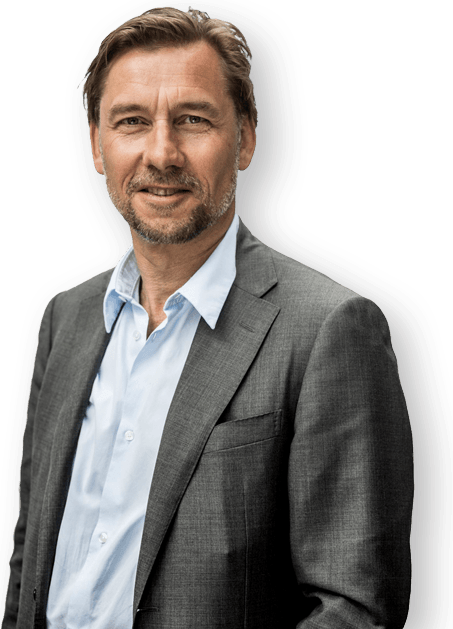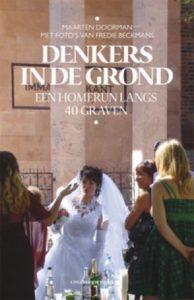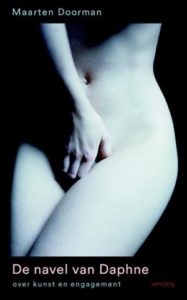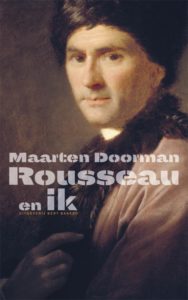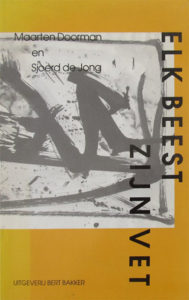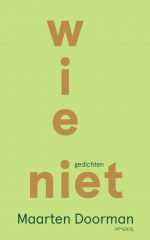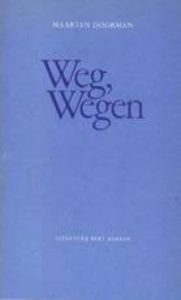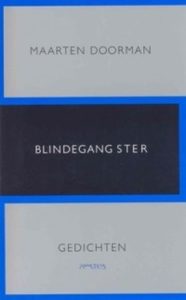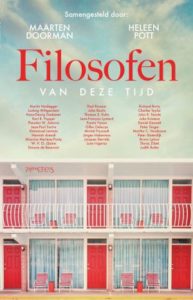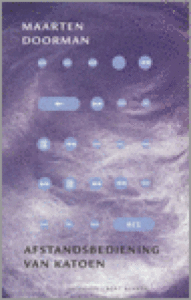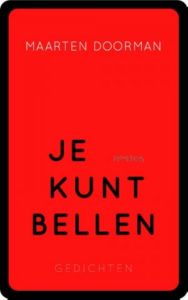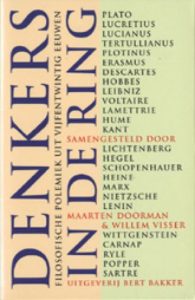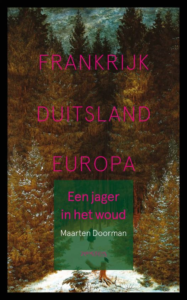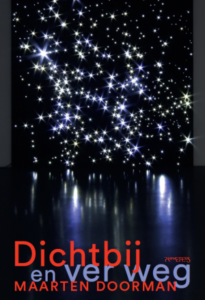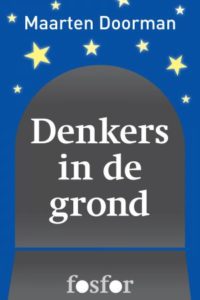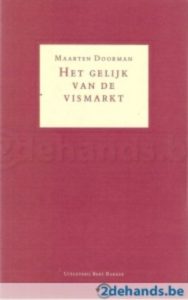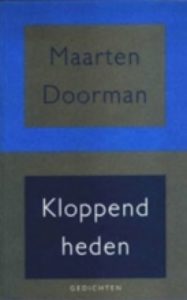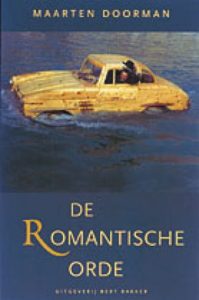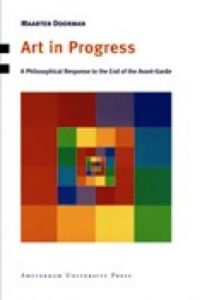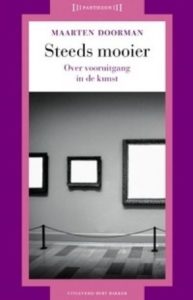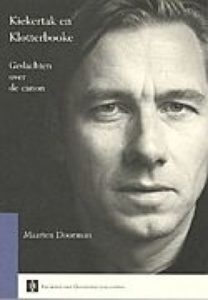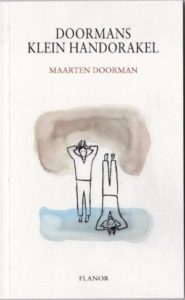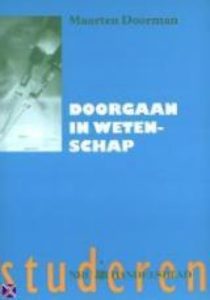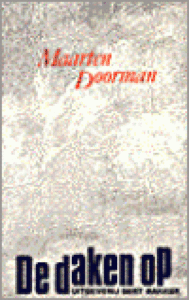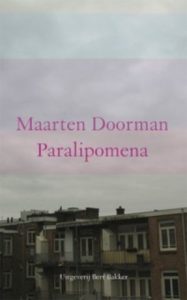Maarten Doorman teaches philosophy at the Faculty of Arts and Social Sciences, University Maastricht, and is Endowed Professor in Historical Culture of Germany at the Faculty of Humanities at the Vrije Universiteit Amsterdam (on behalf of Duitsland Instituut Amsterdam). He is also known for his poetry, his criticism and his books. See here
He was editor of the literary magazine Hollands Maandblad and the philosophical 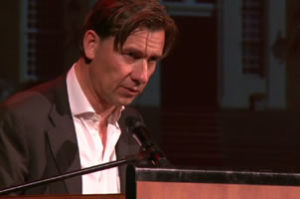 journal Krisis. He has been a respected critic of philosophy, poetry and history of ideas for the leading newspapers NRC and de Volkskrant and contributed to many journals and newspapers with articles on philosophy, the visual arts, media and literature.
journal Krisis. He has been a respected critic of philosophy, poetry and history of ideas for the leading newspapers NRC and de Volkskrant and contributed to many journals and newspapers with articles on philosophy, the visual arts, media and literature.
Doorman held an endowed Chair in Literary Criticism at the Vrije Universiteit Amsterdam (2000-2004) and an endowed Chair in Criticism of Culture and Arts at the University of Amsterdam (Department of Mediastudies, 2004-2014).
His last books are Art in Progress. A Philosophical Response to the End of the Avant-Garde (2003) (free download of the integral book here), De romantische orde (2004), Paralipomena (2007), Rousseau en ik (2012, about Rousseau and authenticity ), De navel van Daphne (2016, about the visual arts, politcs and autonomy), Dichtbij en ver weg (2018, essays) and Een jager in het woud. Frankrijk, Duitsland, Europa (2023).
For a recent article on art, engagement and autonomy download here. And for an article on translocality in the visual arts download here. Doorman has participated in many radio and television programms (as in the legendary television program Zeeman met boeken) and is a well regarded intellectual in the Netherlands.
Maarten Doorman is chairman of the foundations Glubbdubdrib and Biografieportaal and member of the Supervisory Board of Stedelijk Museum Amsterdam.
See also http://www.letterenfonds.nl/nl/schrijver/64/maarten-doorman,
- Arthur Danto: ‘The end of art does not entail that there has not been genuine progress in the philosophy of art. Maarten Doorman’s challenging and valuable study contributes to that progress, whether or not progress in art itself remains, as he argues, a tenable idea.’
* When art meets science: how to use Dangerous Liaisons with students:
- For an article on the role of the imagination in art download here.
- For an article about art and autonomy download here
- For an article about Woodstock and romanticism download here
- WHY ART NOW in corona times: download here
The Romantic Imperative (De romantische orde)
How the Romantic ideal has become entangled in its own paradoxes
Modernism and postmodernism are the pivotal concepts that Western man uses in his attempts to come to grips with his situation in the early years of this new millennium. But in The Romantic Imperative, philosopher and poet Maarten Doorman shows us that our contemporary way of life is actually influenced more than we may realise by the Romantic revolution of the early nineteenth century.
For it was then that people began seeing themselves not as creatures who existed, but as creatures who became, who were in possession of an authentic ‘I’ that was more than the sum of their strict societal roles, and who had received the calling to be creative.
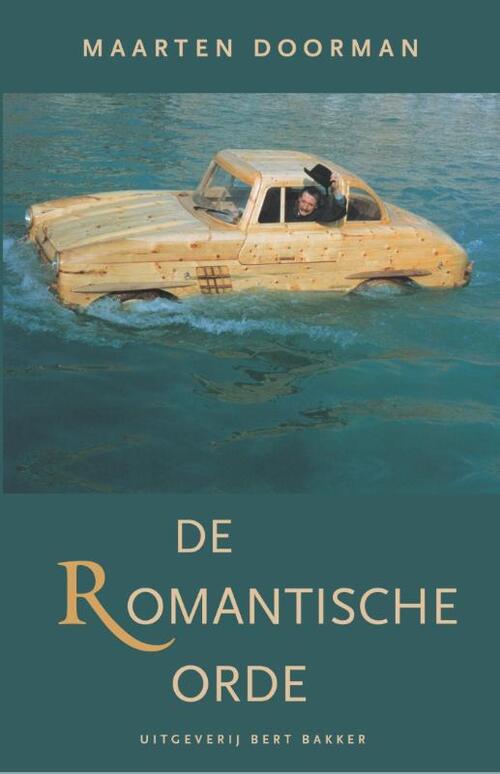
Two centuries later, that call is still heard clearly, even in the remotest corners of our culture. In the panorama Doorman presents to his readers, the modern world appears as a bundle of contradictions that can only be understood when seen in the light of their common Romantic background. With an easy and natural erudition, he shows us how the Romantic ideal has become entangled in its own paradoxes: the belief in an authentic ‘I’ led to the discovery of the subconscious; the imperative of self-realization led to the awareness of alienation; the glorification of the imagination resulted in a banal culture of self-gratification.
Although the artist has been elevated to the status of genius, this has also caused the work of art itself to gradually fade into the background. And those who have heeded the Romantic summons to be aware of national identities have, finally, also been unable to resist the temptation of creating for themselves a largely fictitious, and preferably illustrious, past.
The Romantic Imperative is a lucid look at a culture in a state of crisis, prompted by its failure to understand its own motivating forces. Doorman clearly shows us not only the roots of this confusion, but also the challenge it poses for such diverse fields of endeavour as history, the arts and the body of thought concerning nations and democracy.
With true virtuosity, the author shuttles back and forth between the founders of Romanticism (Herder, Schiller, Byron, Novalis, Nietzsche and Rousseau) and their heirs: from Jimi Hendrix and Jeff Koons to Pierre Boulez, Marcel Duchamps and Andy Warhol. In Doorman’s view, Woodstock and the events of May 1968 were the culmination of a process that lasted two hundred years, a process which now seems about to collapse under its own contradictions, but one which Western culture is still unable to get along without.
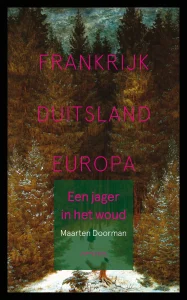 Een jager in het woud. Frankrijk, Duitsland, Europa
Een jager in het woud. Frankrijk, Duitsland, Europa
(A Hunter in the Forest. France, Germany, Europe.)
(224 pages, 12 illustrations, 2023)
In turbulent post-Brexit times with military agitation in Eastern Europe, eyes are once more on the (not so much flourishing) French-German axis. Will these countries together be able to give direction again to the future of the European continent? And will they finally manage to bridge the gulf they have inherited from their shared past? Four wars have left deep scars, and even if the Erbfeindschaft (‘hereditary enmity’) between the two countries has fully evaporated ever since the last world war, history shows that national prejudices and clichés are often more persistent than we are inclined to believe and would hope for.
Moreover, is it not true that the Fifth Republic stands in the tradition of the Enlightenment, as the triumph of reason, whereas the German nation is rooted in an introverted romanticism? Or is France too focused on the past, and is German politics more engaged with the future? In the last ten years, a number of exhibitions and a series of commemorations of the violent confrontations between the two countries shed new light on the relationship between France and Germany. Frequently we could hear old sounds merged in a new harmony, and often we saw faded images light up in new forms.
Een jager in het woud (‘A Hunter in the Forest’) guides the reader with music, the visual arts, film, and literature through a painful history of large-scale armed conflict. From the French-German War (1870-1871) and the proclamation of the German empire in Versailles, back to napoleontic times and the German wars of liberation, and then from the trenches of La Grande Guerre to the total catastrophe of World War II.
Looking for a good balance between remembrance, commemoration and oblivion, and taking the perspective of all this history, the author of this book, a near and concerned national outsider, casts a glance at the role of France and Germany in the unpredictable future of Europe.
Publisher:
Prometheus / Bert Bakker
Herengracht 48
NL – 101 BN Amsterdam
TEL. +31 20 624 18 34
FAX +31 20 622 54 61
E-mail: info@pbo.nl
https://uitgeverijprometheus.nl/auteurs/maarten-doorman.html




